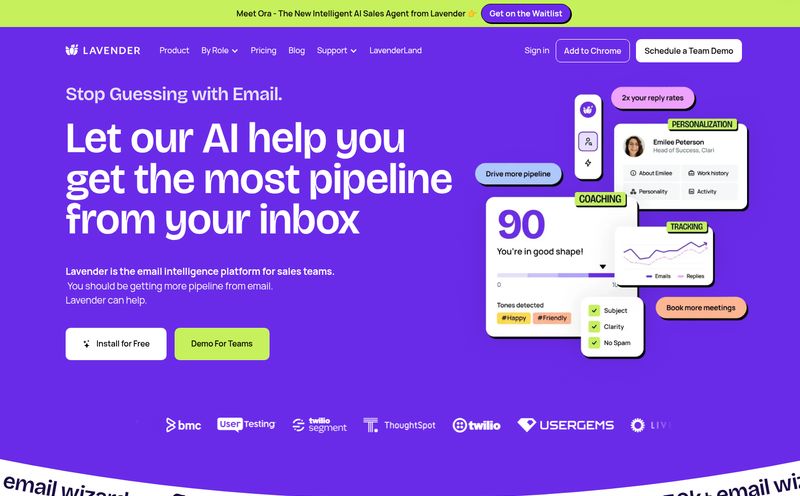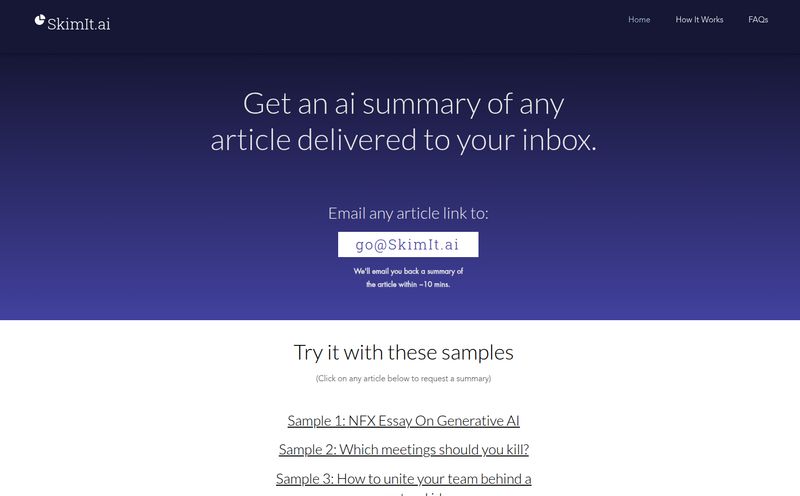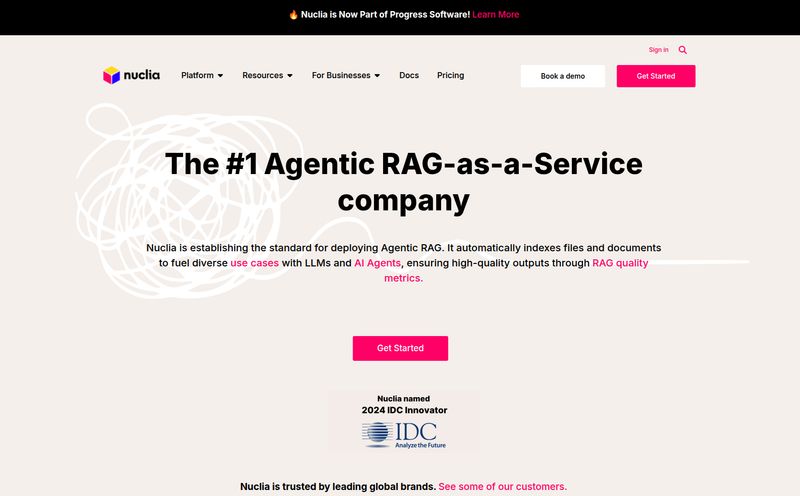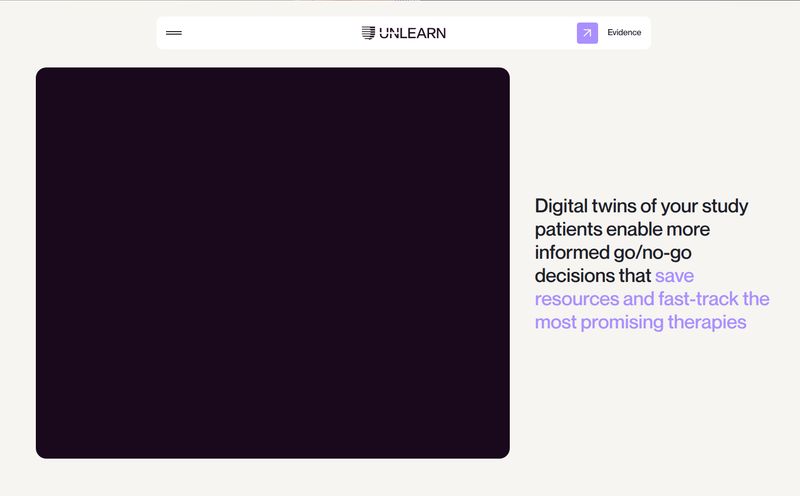Ever since OpenAI opened the floodgates with the GPT Store, it's felt like the wild west all over again. One minute you’re hearing about a custom GPT that can perfectly format your code, the next you're 20 clicks deep trying to find one that can just generate a decent dinner recipe without suggesting you pair it with a 1982 Bordeaux. It’s a mess. A beautiful, chaotic, and utterly overwhelming mess.
It reminds me of the early days of the Apple App Store. A million fart apps for every genuinely useful tool. Finding the gems required word-of-mouth, lucky guesses, or relying on the few tech blogs that were brave enough to sift through the digital sludge. We're right back there, folks. The potential is massive, but the signal-to-noise ratio is… challenging.
So, you can imagine my excitement when I stumbled across a tool called GPTs Map. The name alone was a promise. A map! A chart! A way to bring some semblance of order to the madness. A tool to discover, share, and even create my own curated collections of GPTs. It sounded perfect. Maybe a little too perfect.
So, What's the Big Idea Behind GPTs Map?
At its core, GPTs Map is (or was, more on that in a minute) a navigation tool built for our new AI-powered world. Instead of just dumping you into OpenAI's massive, sprawling store, it aimed to be a community-curated library. Think less of a formal, top-down directory and more like creating and sharing Spotify playlists for your favorite AI assistants. What a concept.
The idea was simple but brilliant. It offered features like:
- An intuitive search function that, presumably, was better than the native one.
- Detailed categorization, so you could actually browse by topic instead of just whatever was trending.
- And the killer feature in my book: the ability to create and share your own custom GPTs collections.
Just imagine being able to send a single link to your marketing team with a collection titled “Our Go-To SEO GPTs,” containing everything from a keyword research assistant to a meta description writer. Or a teacher sharing a collection of “Educational Helpers” with their students. The collaborative potential is genuinely exciting.

Visit GPTs Map
The Promise of Order in a Chaotic Landscape
Why do we even need a tool like this? Because discovery is broken. The official GPT Store, for all its power, feels like a library where all the books have been thrown on the floor. GPTs Map promised to be the diligent librarian, helping us sort them.
The real magic is in the human element. AI can generate content, sure, but it takes a human to recognize true quality and context. I’ve always believed that the best tools are the ones that facilitate community. This platform wasn’t just about finding GPTs; it was about sharing expertise. When an experienced copywriter shares their “Killer Ad Copy GPTs” collection, that's not just a list—it's a vetted recommendation. It’s a shortcut past all the duds. That kind of curation is worth its weight in gold.
But a Human-Curated Library Has Its Flaws
Of course, any system that relies on user submissions is a double-edged sword. For every amazing, thoughtfully curated collection, you’re bound to get a dozen low-effort, self-promotional, or just plain bad ones. Quality control becomes a nightmare.
That’s the main drawback I could see with a platform like this. The quality, it really depends on the crowd. If it’s not moderated carefully, a tool designed to reduce overwhelm could ironically become just as overwhelming as the problem it set out to solve. A map with a million crisscrossing, unverified paths isn't a map at all; its just more noise. It's a tricky balance to strike, and one that many community-driven platforms have struggled with over the years.
How it Stacks Up Against the Official GPT Store
I don’t see a tool like GPTs Map as a competitor to the official GPT Store. I see it as a much-needed layer on top of it. A companion. The GPT Store is the untamed wilderness, full of incredible wonders and hidden dangers. GPTs Map is the community-drawn treasure map, pointing out the gold veins and marking the pitfalls.
OpenAI’s store gives us the raw material. Tools like this give us a way to make sense of it all. They fill in the gaps that a massive corporation might overlook, like niche community needs and the subtle art of human-powered curation. It's a symbiotic relationship, really.
And What About the Price?
Here’s the kicker. From what I could gather, GPTs Map was free. In an era where every half-decent AI tool seems to launch with three tiers of subscriptions, the word “free” is a beautiful sound. It suggests this was a passion project, built by someone who felt the same pain point as the rest of us and decided to do something about it. I have to respect that. No enterprise-level pricing, no convoluted credit system. Just a tool for the community. A rare thing these days.
The Mystery of the Dead Link
Okay, so I have to come clean. As I was gearing up to really use this tool, I hit a snag. A big one. The site wouldn’t load. `ERR_CONNECTION_REFUSED`. A digital dead end.
So, what gives? Did I just write a whole article about a ghost ship? Maybe. There are a few possibilities. Perhaps the site is just temporarily down for maintenance. Maybe the server had a hiccup. Or, and this is a common story in the fast-moving AI space, maybe it was a brilliant shooting star of a project that burned bright for a moment and then vanished. It happens. Ideas launch, get some traction, and then the developer gets a new job or runs out of funds to keep the server running.
But here’s the thing: even if GPTs Map is gone for good, the need for it isn’t. The problem of GPT discovery is only going to get bigger. Its existence, however fleeting, proves that there's a demand for better ways to navigate the AI ecosystem. It’s a proof of concept. Someone, somewhere, is probably building the next, more sustainable version of this right now. And I, for one, can’t wait to see it.
Frequently Asked Questions
- What is a custom GPT anyway?
- A custom GPT is a version of OpenAI's ChatGPT that a user has tailored for a specific purpose. You can give it custom instructions, upload knowledge files, and define specific capabilities, like searching the web or creating images, to make it an expert in a particular task, from being a sous chef to a code reviewer.
- Why is it so hard to find good GPTs in the official store?
- The main issue is volume and basic search functionality. With millions of GPTs being created, the official store can feel crowded. Its search and categorization features are still quite rudimentary, making it difficult to sift through the vast number of options to find high-quality, relevant tools for your specific needs.
- Are third-party GPT directories safe to use?
- Generally, yes, as long as you exercise a bit of caution. Most directories, like GPTs Map, simply link out to the official GPT on OpenAI's domain. The risk is low. However, always be wary of any site that asks for your OpenAI login credentials or other personal information. Stick to directories that simply curate and redirect.
- Can I make my own collection of my favorite GPTs?
- That was the key feature of GPTs Map! While that specific tool might be unavailable, you can always curate your own list manually using a note-taking app, a spreadsheet, or a document. It's not as slick, but it gets the job done until the next great discovery tool emerges.
- Is GPTs Map the only tool of its kind?
- No, and that's the good news! The need for GPT discovery has spawned several other projects. A quick search will reveal other directories and curated lists, though they all vary in quality and focus. The space is still very new, so we'll likely see many more attempts to solve this problem.
Final Thoughts on Charting the Unknown
Whether GPTs Map ever comes back online or remains a digital legend, it highlighted a crucial gap in the AI universe. The gold rush is on, and we're all digging for nuggets of AI-powered productivity. But without a map, we're just digging in the dark.
The future isn't just about who can build the most powerful AI. It’s also about who can build the best libraries, the best indexes, and the best maps to help us all navigate it. The curators, the librarians, and the cartographers of this new world are just as important as the inventors. The demand for a tool like GPTs Map is undeniable, and I have a feeling we've only seen the first attempt to chart these exciting, new waters.
Reference and Sources
- OpenAI's Official Announcement of the GPT Store
- TechCrunch Coverage on the GPT Store Launch
- Community Discussion on the GPT Store on Reddit



